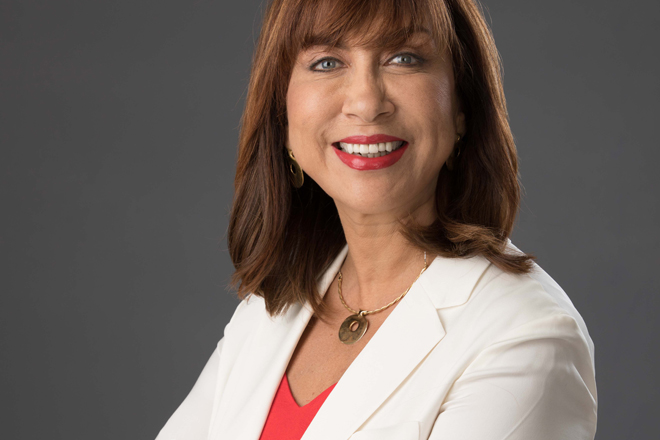By Hanaa Singer-Hamdy, Resident Coordinator, UN Sri Lanka:
The complex challenge posed by COVID-19 both in protecting public health and the socioeconomic functioning of the country confront policymakers with difficult choices. Large scale movement and physical distance restrictions, often referred to as ‘lockdowns’, can slow COVID‑19 transmission by limiting contact between people, but these measures can also have a negative economic impact and affect disadvantaged groups who most often live in overcrowded and under resourced settings, and depend on daily labour for subsistence.
The United Nations recognizes that at certain points, some countries have no choice but to issue stay-at-home orders and other measures. The recent decision by the Government of Sri Lanka to keep in place an island-wide lockdown was critical to help limit the spread of the virus, provide time for the health system to increase capacity, protect healthcare workers, reach vaccination targets, and most importantly save lives. Sustaining the current public health measures, while providing support to those who are most vulnerable to curfews, is an investment to allow Sri Lanka’s broader economic recovery in the medium term.
Sri Lanka is currently in the 11th position of the countries with highest number of deaths per 100,000 population according to WHO figures on 25 August. As indicated in the 6th Independent Technical Expert Group Meeting on 26 August convened by the World Health Organization (WHO), if lockdowns are extended to 18 September and 2 October, respectively, 7,500 and 10,000 deaths can be prevented (in comparison to a release on 30 August). An extended lockdown allows time for the health system to recover from the current pressures including a shortage of beds and critical supplies like oxygen.
It is therefore important to count the human cost of the pandemic, over short-term economic concerns. The economy can recover but those we lose will never return. A short-term lockdown now will save lives, offer respite to our tireless health workers, and limit the long-term social and economic dislocation of a wider COVID-19 outbreak.
There remain economic concerns with many believing that the long-term impact of the pandemic on the economy will cost many more lives in the future and drive businesses into bankruptcy and individuals to poverty. The WHO in Sri Lanka recently projected that an extension of the lockdown to 18 September would result in an economic loss of USD 1.67 billion, while an extension of the lockdown to 2 October would result in an economic loss of USD 2.22 billion. However, economic activity can normalise in many areas when effective public health measures contain the spread of COVID-19. In 2020, Sri Lanka's GDP quickly returned to pre-pandemic levels after a contraction of 16.4% in the 2nd quarter of 2020, with the economy continuing to expand by 2.3% on average the three quarters to March 2021 as transmission of COVID-19 remained relatively suppressed. This is testament to how maintaining strict lockdown measures during crucial periods reduces COVID-19 transmission and mortality and contributes to a safer public health environment as this gives workers and businesses the confidence to resume their economic activities and provides a basis for a sustainable economic recovery.
This lockdown period should be used to build capacities to detect, isolate, test and care for all cases; trace and quarantine all contacts and increase vaccination. It is also important to mobilize all sectors of society, with partners supporting the Government in its engagement with faith groups, NGOs and the civil society, and thus help meet the needs of lower income groups who are bearing the brunt of the health and socioeconomic effects of COVID-19. These measures will allow authorities the opportunity to plan for a systematic re-opening of sectors, regions, and the return of employment categories
The Government has progressed impressively in vaccinating those above the age of 30 and current figures showing that more than 56% of the population have received at least one dose of the vaccine and more than 31% of the population having received both doses. The United Nations through our COVAX facility has supported the procurement of vaccine donations from Member States and UNICEF and WHO have supported the health system in administering vaccines.
However, a vaccine on its own will not end the COVID-19 pandemic. We will still need to continue with policy and medical measures such as surveillance, testing, isolating, and caring for cases and tracing and quarantining contacts. The public must also continue to follow physical distancing and health measures such as washing hands and avoiding closed spaces, crowded places, and close-contact settings.
The UN in Sri Lanka has provided technical, material, skills, partner coordination and logistical support and will continue to work with government partners to address both the health and socioeconomic impact of the pandemic to help Sri Lanka recover and build back better. It is only through solidarity, partnership, and personal responsibility that we will defeat this virus – let us all do our part.
(Hanaa Singer-Hamdy is the United Nations Resident Coordinator in Sri Lanka and leads the UN Country Team of Resident and Non-Resident UN Agencies. She is the representative of the UN Secretary-General in Sri Lanka.)

